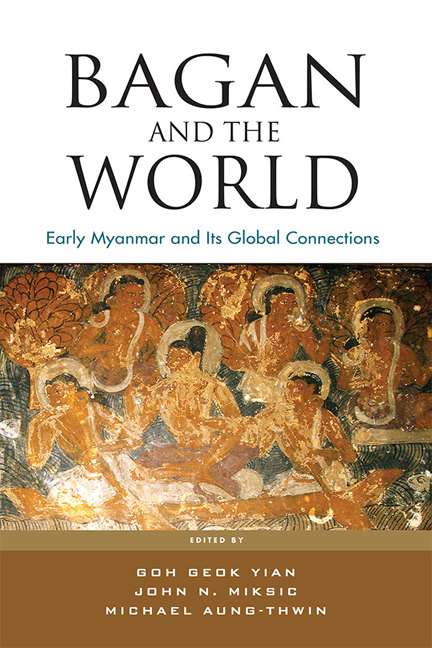
- Publisher:
- ISEAS–Yusof Ishak Institute
- Online publication date:
- February 2018
- Print publication year:
- 2017
- Online ISBN:
- 9789814786652
Our systems are now restored following recent technical disruption, and we’re working hard to catch up on publishing. We apologise for the inconvenience caused. Find out more: https://www.cambridge.org/universitypress/about-us/news-and-blogs/cambridge-university-press-publishing-update-following-technical-disruption

The archaeological site of Bagan and the kingdom which bore its name contains one of the greatest concentrations of ancient architecture and art in Asia. Much of what is visible today consists of ruins of Buddhist monasteries. While these monuments are a major tourist attraction, recent advances in archaeology and textual history have added considerable new understanding of this kingdom, which flourished between the 11th and 14th centuries. Bagan was not an isolated monastic site; its inhabitants participated actively in networks of Buddhist religious activity and commerce, abetted by the site's location near the junction where South Asia, China and Southeast Asia meet.This volume presents the results of recent research by scholars from around the world, including indigenous Myanmar people, whose work deserves to be known among the international community. The perspective on Myanmar's role as an integral part of the intellectual, artistic and economic framework found in this volume yields a glimpse of new themes which future studies of Asian history will no doubt explore.
 Loading metrics...
Loading metrics...
* Views captured on Cambridge Core between #date#. This data will be updated every 24 hours.
Usage data cannot currently be displayed.